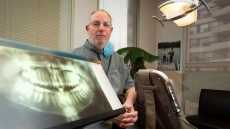Women who live in areas with a high level of air pollution may be at increased risk of developing dense breasts -- a well-established risk factor for breast cancer, a study of nearly 280,000 US women said.
The study, published in the journal Breast Cancer Research, revealed that for every one unit increase in fine particle concentration (PM2.5), a woman's chance of having dense breasts was increased by four per cent.
Women with dense breasts were around 20 per cent more likely to have been exposed to higher concentrations of PM2.5.
Conversely, women with less dense, or breasts with more fatty tissue, were 12 per cent less likely to have been exposed to high concentrations of PM2.5.
"Our findings suggest that previously reported geographic variation in breast density could, in part, be explained by different air pollution patterns in urban and rural areas," said Lusine Yaghjyan, led author from the University of Florida, US.
Chemical constituents of PM2.5 air pollution are known to include pollutants that have endocrine disrupting properties.
These pollutants could potentially influence breast density by interfering with growth of cells in the breast and
increasing the relative amount of fibroglandular tissue, the researchers said.
On the other hand, the researchers found that every one unit increase in ozone concentration was associated with a three per cent lower chance of having dense breasts.
"We found a positive association between fine particle concentration exposure and breast density but an inverse association between ozone exposure and breast density," Yaghjyan explained.
"This is an intriguing result that warrants further investigation to unpick any possible biological mechanism that might cause ozone exposure to reduce a woman's chance of having dense breasts," he said.




